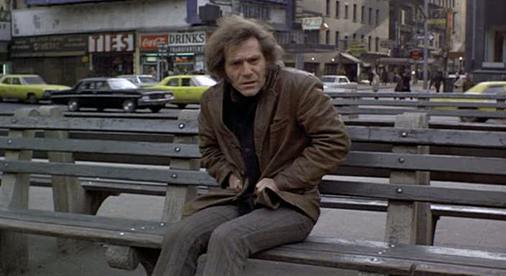 Ivan Passer's Born to Win is a gritty, tough "drug movie" that really personifies the type of film that lives and dies with its lead performance. Fortunately, Ivan Passer's film features George Segal giving a great subtle, yet extravagant performance as a heroin addict Jay Jay. Jay Jay is a character that is a bit "lost", but the film develops him so well, with a full-dimensioned characterization that displays his off-kilter antics and carefree disposition, making him a character that the audience can't help but feel endeared too, regardless of his lifestyle. Given the tought subject matter and the empathy George Segal creates in this challenging role, I am really surprised that George Segal's performance in this film didn't receive more accolades. Born to Win is a pitch black comedy, with 1970s New York being a perfect setting for this raw portrait. The filthy, grime and grain which is associated with many of the films taking place during period in New York always offers such an interesting time capsule of an forgone era, a setting that I've always had an affinity for. Born to Win balances its drama and comedy really well, skating by on its dark comedy for the majority of the film. There are some great comedic moements throughout, with my favorite being between a sequence where George Segal runs around in a ladies night gown and a sequence where he tries to get chummy with a drug dealer by talking about the benefits of Vidal Sasson, which pefectly captures Jay Jay's endearing sleazy brand of charm. The finale of Born to Win hits the viewer like a ton of bricks with its dramatic weight, almost as if Ivan Passer was setting up the viewer the entire film with black comedy, waiting for the right time to remind the viewer that the junkie lifestyle is far from fun and games.
0 Comments
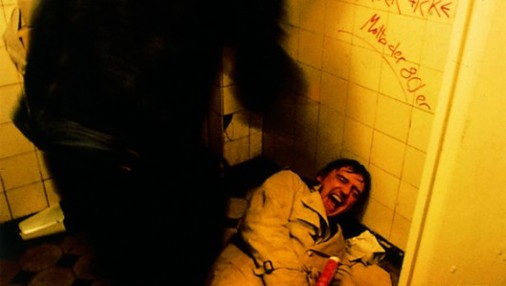 Kenneth Barlow has spent most of his adult life working in the music industry. After hitting his peak as the road manager for the Rolling Stones, Barlow has set his eyes on Moody Moodinsky, a good-looking, blue-eyed, blond-haired keyboard player, who Barlow pitches as 'White Star', the next big thing. Barlow is a manic promotor and marketer, telling anyone who will listen that 'White Star' is the future of music. Rolank Klick's White Star is an off-kilter and strange commentary on the music industry that uses Dennis Hopper's explosive performance as Kenneth Barlow to capture the power of marketing manipulation. Though far from polished and not nuanced in the slighest, Roland Klick's film is strangely compelling thanks to Hopper, who may actually give the most memorable performance of his career. Barlow is a man who is desperate to get back to the top of the industry, pulling out every promotional ploy and breaking ethical boundaries to get there. When we are introduced to Barlow he is practically staging a riot before a White Star performance to stir up conversation and publicity, and later on, Barlow absurdly stages an assasination attempt on Moody, in an effort to launch his star into the strastosphere. Words don't do Hopper's unhinged performance justice, as Hopper presents a vey unstable force in Barlow, desperate for success and seemingly willing to do anything to make White Star a huge success. Throughout the entire film Moody never gives a single performance as 'White Star' in front of a live audience, with Hopper's Barlow being the man slowly making things work, through desperate and extreme means. The dynamic between Barlow and Moody is endlessly off-kilter, with Moody trusting Barlow more so than not, which slowly leads him to a breaking point himself. Roland Klick's White Star is a film that is still relevant today, maybe more so, capturing the mechanical manufacturing of artistic talent that can take place when fame and money are involved, with Kilck doing so in a very "punk" way. 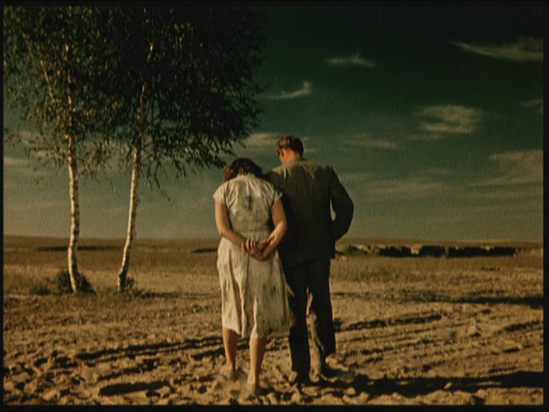 Mikhail Kalatozov's The First Echelon chronicles the lives of a group of young men and women who arrive in the region of Kazaakhastan, with the assignment of working as farmers to help cultivate the land. The film ends in a way that essentially just glorifies collective farming, but I think it does raise a lot of questions on it's way there. The youth are incredibly enthusiastic when they first arrive; they are all very friendly to one and other and can't wait to prove themselves for the greater good of their country. As the film progresses, we see some of this enthusiasm dissipate as the competitive culture of their environment grabs hold, with certain characters lashing out against authority, while others just try to do what they are told. This sense of competition and efficiency breeds a certain loss of individualism, as numbers and results become more important than anything else. While I do think the film is a little too talky, its greatest strength lies in the characters and relationships that unfold. All the characters have a lot of depth, and bring unique traits to this story and the film does a good job at balancing them all. The two most compelling characters for me had to be this hooligan type character who frequently gets in trouble with authority, and a character who has been given a position of power, who seems to slightly feel his humanity is disappearing as he is forced to make tough decisions. These two characters from a great dichotomy for the film, and while there is no question that this is a weaker effort of Mikhail Kalatozov, The First Echelon still has a lot of interesting anecdotes, with one of my favorite being its most likely unintentional anti-drinking message.  Based on the book by Lawrence Wright, Alex Gibney's Going Clear provides an intricate look into the Church of Scientology through eight former members, as they detail their experiences with the "church" and what they were willing and forced to do in the name of religion. Starting from the beginning, Get Clear documents the creation of Scientology by founder L. Ron Hubbard, documenting the meteoric rise of the religion fueled by Hollywood 'A' list actors and one-percenters, to where it stands today - a "non-profit' billion dollar enterprise. Apologetically one-sided in its view of Scientology, Alex Gibney's film meticulously details how Scientology was created on the whims of a man in Hubbard who may have been paranoid delusional, with Scientology being a religion that could be used for financial gain. The film paints a convincing argument that Hubbard drove himself towards insanity due to Scientology, becoming to believe that he himself had a "Thetan", an immortal spiritual being trapped inside him. Using the founder in Hubbard as a paramount example of the dangers of the Church of Scientology, Going Clear exposes how the church's promise of a better life, fueled through success and money, because to become a psychological crux to individual, as they become psychologically attached to the idea that Scientology is the only reason they are being successful. Scientology prays on the hopes and dreams of people they indoctrine, with Going Clear being a poignant study of the darker psychology of faith and religion, showing how Scientology took advantage of the weaknesses of others, building its empire on false promises and fear. Incendiary and intoxicating, Alex Gibney's Going Clear: Scientology and the Prison of believe is a provocative story of exploitation by the Church of Scientology, painting a convincing portrait of an organization only interested in power and money, not people.  Shaul Schwarz' Narco Cultura takes a look at the growing number of Mexicans and Latinos who glorfiy the narcotic trafficing lifestyle in America, follwing one such musician who praises these traffickers as a model for success. Justaposing the story of these young muscians who glorify drug traffickers with the real horror drugs cause in Juarez, Mexico, Narco Cultura is an effective portrait of the horrors the drug trade brings, being told in a relatiely unique way. While juxtaposition of the glorification of the drug trade in youth culture with the violence and death it brings is a unique narrative device, Narco Cultura grows more and more taxing as it progresses, not having anything new to say, in what amounts to the film spinning its wheels of despair in a cycular way that grows old for the viewer. One of the most important attributes of a documentary is its ability to give its viewers perspective into its subject, and Narco Cultura excels in this area, capturing the constant state of fear, violence, and death that plagues the Mexican bordertown of Juarez, Mexico, a major hub for the international drug trade. The perspective Narco Cultura gives into the Criminal Investigator was one of the more poignant aspects of the film, a man who cannot leave his home for safer pastors, intent on doing his job. The film exposes how even the good men are just part of much bigger system of corruption, a shattered system that needs a major overall. While Narco Cultura doesn't hae much to say that hasn't already been said, the film is a rather exhaustive expose into the drug trade. 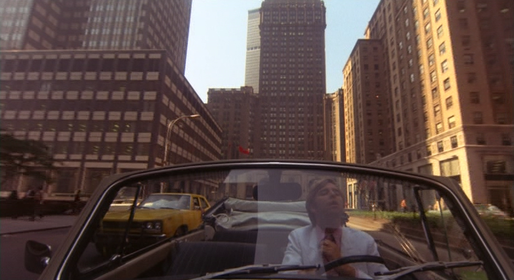 Elgar Enders, a rich young man from New York, lives what he perceives to be an oppressive life under the patriarch and matriach forces of the household. He decides to "run away" from home, which Enders defines as purchasing a building in the African American ghetto in the Park Slope section of Brookllyn. Intending to evict the tenants in order to renovate the building into a yuppie paradise, Elgar soon begins to grow fond of the black tenants. Elgar grows particularly fond of Fanny, the wife of a black radical husband, and Lanie, a young mixed raced woman of a white mother and black father. Endeared to other oddballs of the building as well, Elgar's worldview begins to drastically change. Hal Ashby's The Landlord is a funny and poignant portrait of race in the United States that truly captures the troubling nature of segregation in American communities throughout the country. This has to be Beau Bridges most important performance as Elgar Enders, a young man who feels neglected and oppressed by an uber-wealthy family that shows no interest in what he wants in life. Enders wants something that is his, not his parents, and the tenant building is the gateway to his own freedom, drawing symbolic parallels to the plight of the African American in America. Being the director of well known Harold and Maude, Hal Ashby's THe Landlord carries a playful charm and offbeat sensibilities that make it more effective as a social commentary. Criticisms about The Landlord simply being a white guilt film are misguied, with Ashby really attempting to get to the core issues of race. In fact, The Landlord argues that the majority is never capable of grasping the plight of the minorities, but being aware of it and showing empathy is a good first step. It is a film that is really about urban segregation, with the wealthy and impoverished living completely different lifestyles, living behind the invisible boundaries of their environment. While the wealthy are entitled and spend their days trying to keep themselves entertained, the tenant buildng residents are just trying to get by from day to day. Capturing the pressure that comes from both sides of the community to keep segregation, The Landlord shows how that breeds this attitude of us vs. them, with the best example of this exhibited in a Copee, Fanny's husband, who discovers that her pregnant baby is not his, but the child of a white man. Intensely portrayed by Lous Gossett Jr. Copee explodes in anger, symbolic of the fears of many minorities, especially African Americans, when it comes to seeing their culture disappear. That is my favorite aspect of The Landlord, how it tackles the importance of African American culture preservation. Hal Ashby's direction is as good as ever in The Landlord, with his trademark exquisite editing and an intimate sequence between Elgar and Lanie that is an expressive composition silhouttes over a bright white backdrop, exploring the themes of the film in a visual way. Tender, charming and funny, Hal Ashby's The Landlord is a fantastic social commentary exploring race in America. 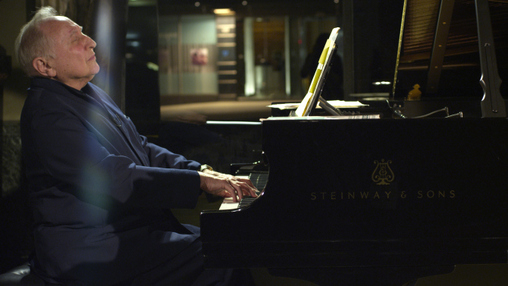 Directed by Ethan Hawke, Seymour: An Introduction is an intimate portrait of Seymour Bernstein, a renowned piano player, with an illustrious career as a performer, who gave it up to teach others, helping them reach their potential as muscians. As a subject for a documentary, Seymour is a fascinating man, an incredibly tender soul, whose worldview is poignant and inspiring. While the film centers around Seymour's love of music, Seymour: An Introduction is more about life itself, with music being the tool to speak too the artistic pursuit, but more importantlythe pursuit of happiness in oneself. Seymour is a man who enjoys his solitude, leaving the stage behind due to conflict between Art and Commerce. The idea of success being defined by acclaim or monetary value is meaningless in the eyes of Seymour, who expresses how art is a deeply personal thing. The power and importance of music is deeply important to Seymour but the way he speaks to a larger, universal truth is what makes this film so interesting. The discussion between talent vs. craft is a great example of this, as the film suggests that there is no artistry without craft, even though talent is the thing that society clings too. This is not something that is not just true in the art world, but the athletic world, or even the social world, and Seymour: An Introduction is full of moments like this that are meditatations not only on life but on art itself. In both art and life, the struggle is tough but important, as it's typically a stepping stone towards accomplishment. Speaking to the importance of music, Seymour raises poignant points about hte emotional significance it brings, criticizing those that analytically dissect music, speaking to the point that the emotion is brings is the only thing of true signficance. Featuring a fascinating subject, Ethan Hawke's Seymour: An Introduction is a poignant tale about art and life that is life-affirming is respects centered around self worth. 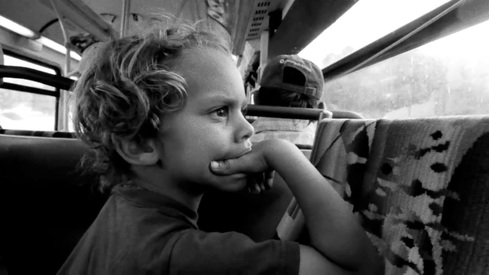 Completely and unequivocally told from the point of view of two young children, Alexandre Rockwell's LIttle Feet is a deeply personal story of two children over the course of roughly twenty four hours. The film's narrative is very simplistic, with the director's own two children playing the two lead actors in Lana and Nico, who occupy their time the way kids do, when not at school. Two children of a recently deceased mother, and father that is wrecked with guilt, Rockwell subtely depicts a home situation for two young children where they clearly have to take care of themselves more so than anyone their age should. After the death of one of their gold fish, Lana and Greg decide the next morning to venture to "the river". Venturing out alone, the two young children leave their Los Angeles home, determined to set their remaining goldfish free. Consisting of almost entirely a child cast, Little Feet essentially feels like a documentary about childhood, feeling similar to Burnett's Killer of Sheep, which Rockwell clearly drew inspiration from. Little Feet chronicles behavior not acting, with many of the moments not being written at all. This half day adventure feels epic in scale, with the film capturing the timelisness of childhood. With LIttle Feet, Andre Rockwell has created a magical experience that captures the exuberance youthful spirit like few films are capable of. Capturing the sense of wonder in these two children, Little Feet turns into a mystical odyssey, as they venture towards the ocean. Shot in monchrome black and white cinematography, Rockwell's film tells a poetic story of life and death with the goldfish odyssey serving as a parable for the need to let go from despair after a loved ones' death. Alexandre Rockwell's Little Feet is a touching, love letter to childhood and deeply personal film about family.  Nathan Silver's Soft in the Head opens on an explosive note, with Natalie, a 25-year-old, in an intense conversation with her boyfriend, for reasons that aren't specifically given. The arguement becomes physical and abusive, which ends with Natalie thrown out on the streets of New York. Soft in the Head is very much a film living in the moment of its characters, not interested at all in giving any type of backstroy to the viewers. "A slice of life" description would be accurate but sounds far too charming for a film like Soft in the Head, being a tough, tragic story. Disheveled doesn't even begin to describe Natalie, a directionless alcoholic that seems to never actually be consciously aware of the world around her. The circumstances of how she got to this point are never given, but it's clear she wasn't always this way given her relations with the Jewish family. The basic narrative involves her crashing her friend's family holiday meal, seducing her socially inept brother, and taking full advantage of the kindness of others to get by. Natalie's other primary stop is at a shelter that is run by a deeply kind man in Maury, who takes an interest in trying to geniunely help Natalie. Featuing fantastic performances from everyone involved, Soft in the Head is the type of film that feels geniune from start to finish, with the viewer questioning whether the filmmaker used real people instead of actors. Sheila Eteberria gives a raw and poignant performance as Natalie, which along with all the characters at the shelter create a natural portrait of the sadder, darker side of New York City. Soft in the Head is a film that essentially evolves through its narrative, becoming not a film about Natlie per se, but the mixing pot of New York City itself, capturing the 'hustle and bustle' of urban life. The cinematography uses lots of tight framing and claustrophobic compositions visually expressing the enclosed, cramped space of New York City. What makes Soft in the Head such a great film though is Natalie's story, a character who slowly becomes empathetic to the viewer, even without knowing anything about her past. She is not a character you will love, but through Natalie, Nathan Silver captures the downward spiral that can consume the psyche of individuals, as they plummet towards rock bottom, drowining in deeply buried sorrow. Nathan Silver's Soft in the Head packs some heavy emotional weight, being a natural-feeling, unmanipultative story of a woman falling fast towards rock bottom with deeply tragic results.  Gili, a naive teenage girl, has just started at a new high school in Tel Aviv. Determined to not be another outcast, Gili begins partcipating in sexual favors for some of the most popular guys at school, Omri and Tomer. Gili views her relationship with Omni as mutually beneficial for both parties, a sorta friends with benefits, but as more time passes it becomes clear that there is no semblance of a friendship to speak of. Jonathan Gurfinkel's Six Acts is a raw and provocative look into sexual abuse, painting a vivid portrait of a young woman's desperate need to fit in. For the most part subtle, Six Acts captures the youth male cutlure that puts sex on a high pedestal, with porn and media influence only aiding in making woman an object to the male gaze, nothing more. Gili is a young woman who is desperate to fit in, and Six Acts beautifuly and subtle establishes a woman who desperately is seeking some form of affection, unable to decipher the difference between sex and geniune caring. Establishing how Gili is a character more susceptiable to this form of naivity is critical, with Six Acts subtlely showing how Gili is part of a broken home, being a single child who has literally no contact with her father at all. Six Acts shows how young impressionable woman become the perfect target, as Gigli essentially becomes a sexual object to Omni and his group of friends, who casually pass her around to one and other. While Omni sexually abuses her he routinely and quite mechanically offers empty words of affection to Gigli, calling her special, beautiful, and amazing, reinforcing Gigli's need to feel accepted and appreciated in the most horrible way possible. While the film's study of objectification is important, Six Acts oversteps its bounds a bit in the end, with a final sequence involving Omni's father that feels a little too forced, as if Gurfinkel wants to make sure the viewer understands this isn't just a problem amoung kids. Jonathan Gurfinkel's Six Acts shows how in society sometimes the only way a woman can find acceptance in through sexuality, a startling and deeply troubling problem. |
AuthorLove of all things cinema brought me here. Archives
June 2023
|
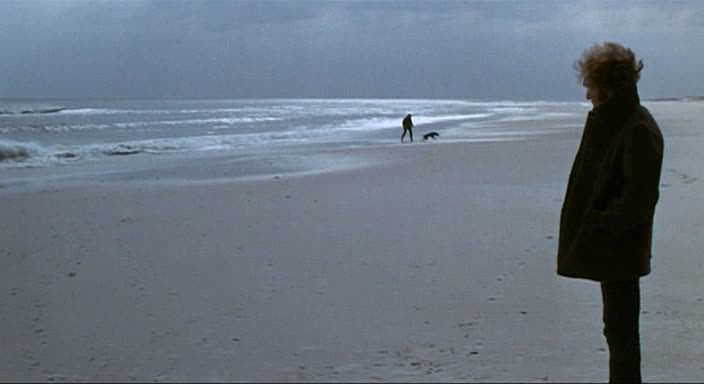
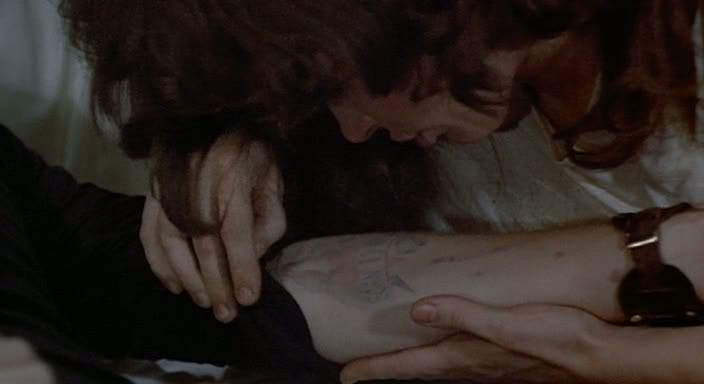
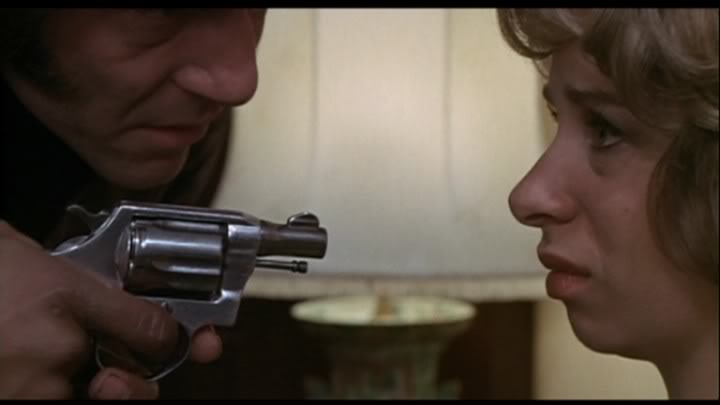
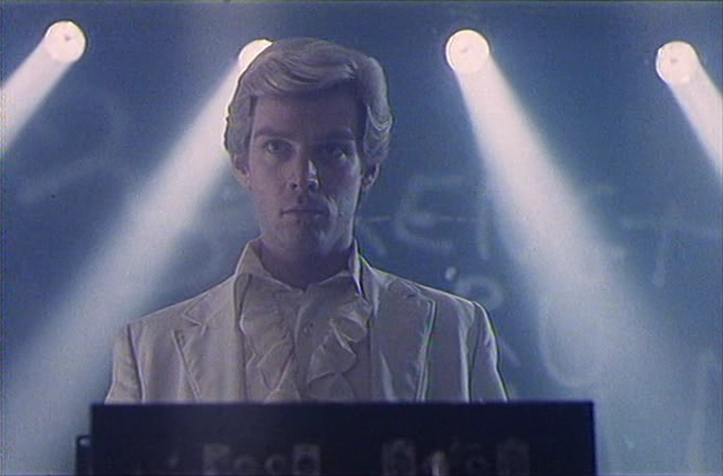
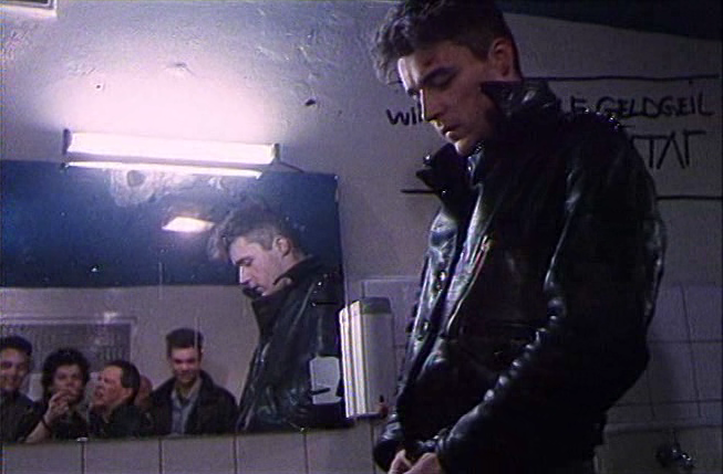
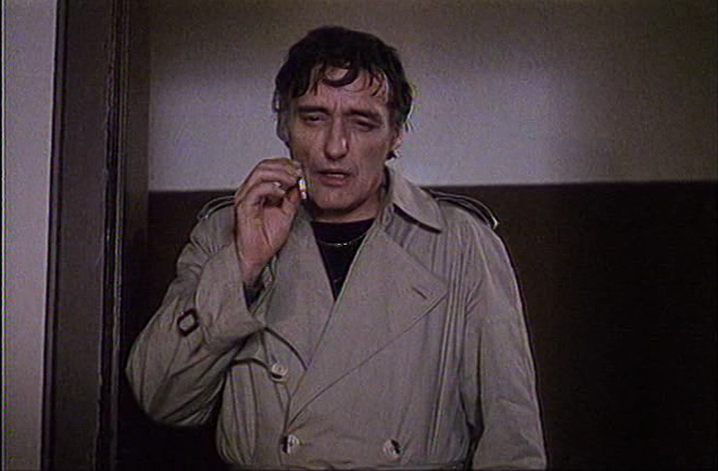
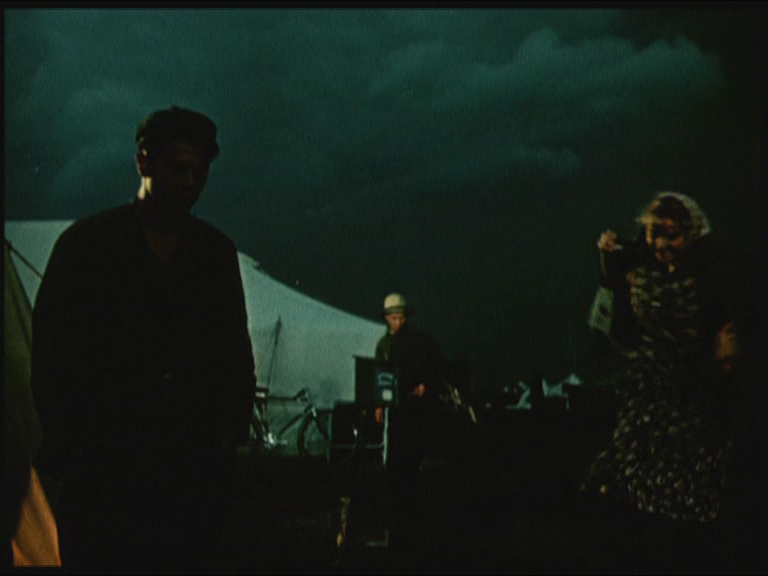
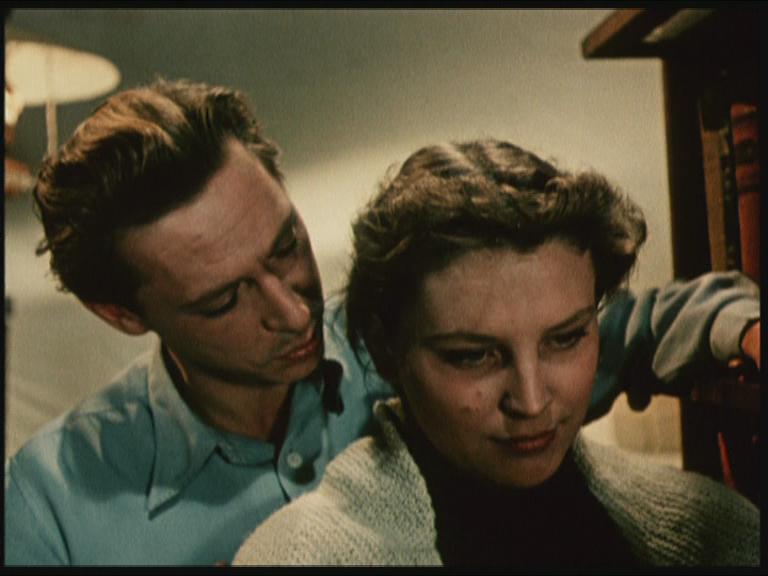




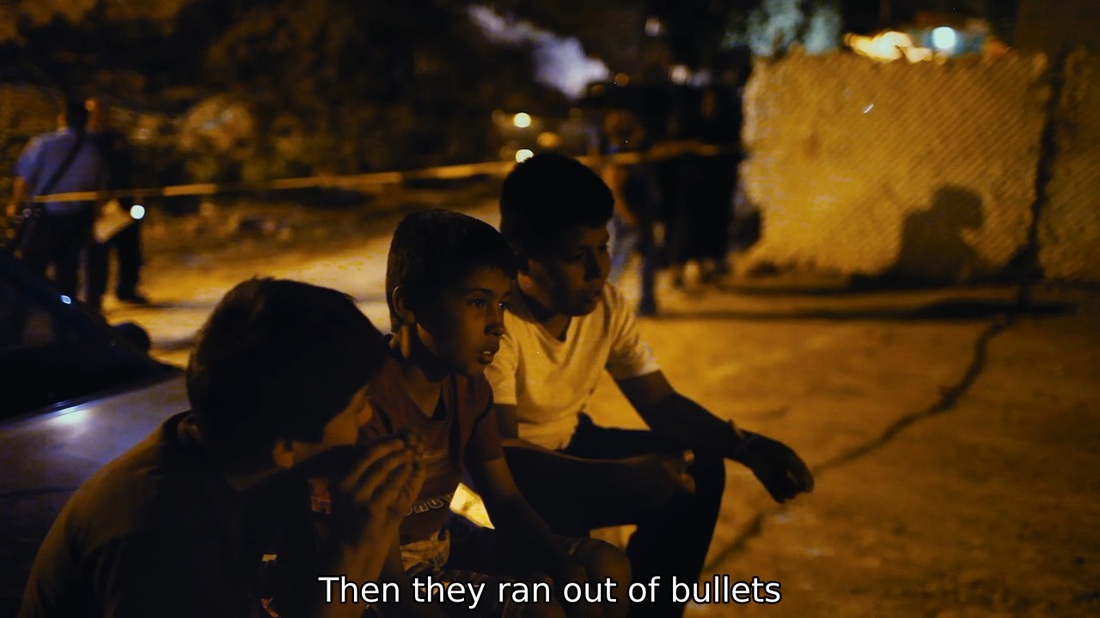



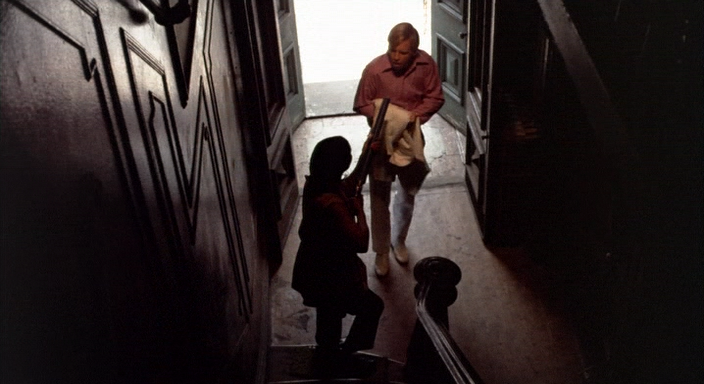
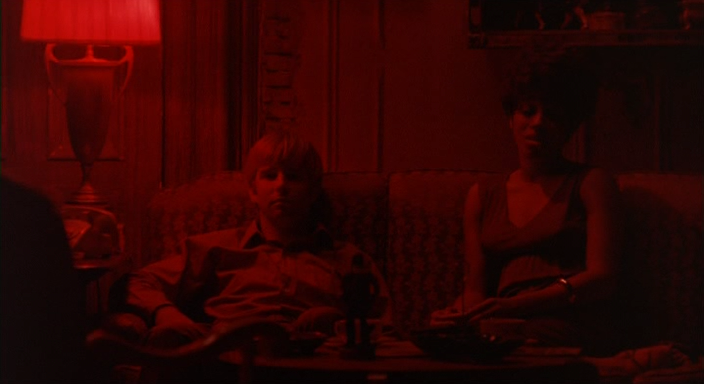
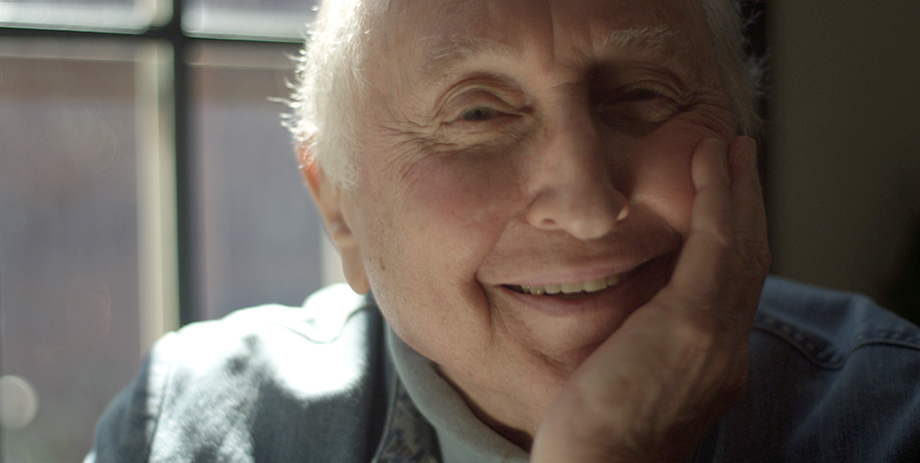
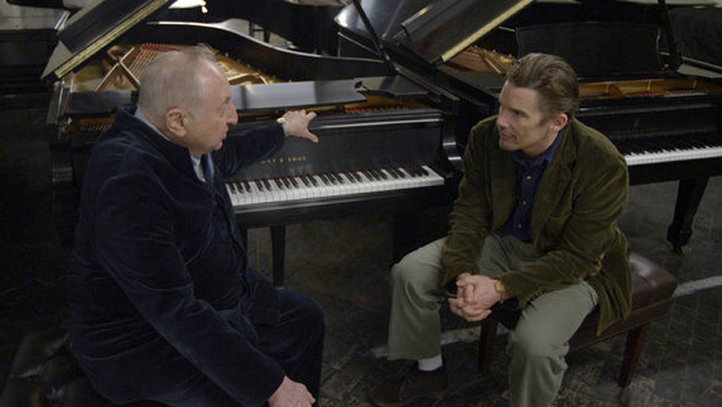
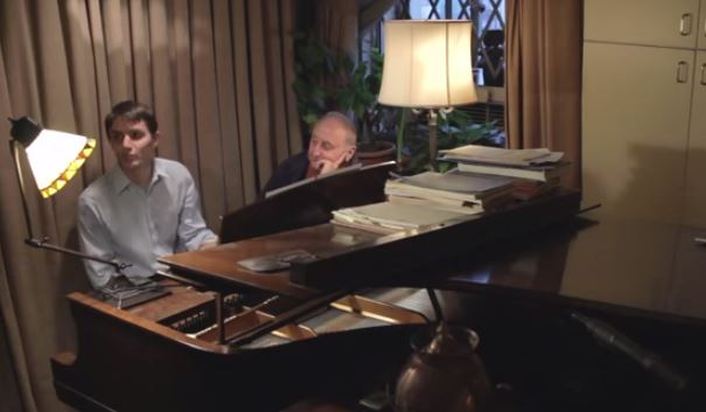
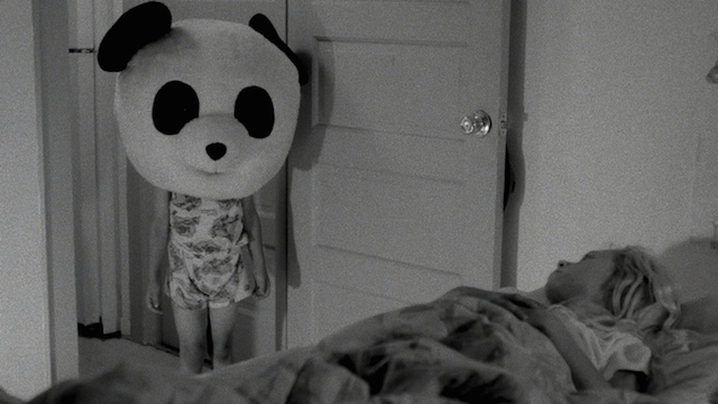
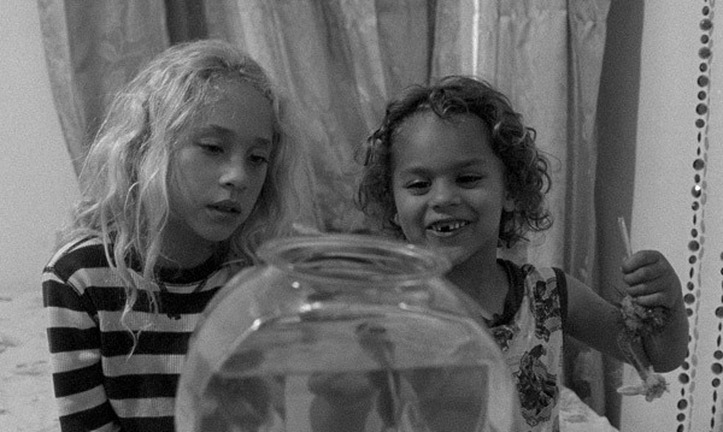
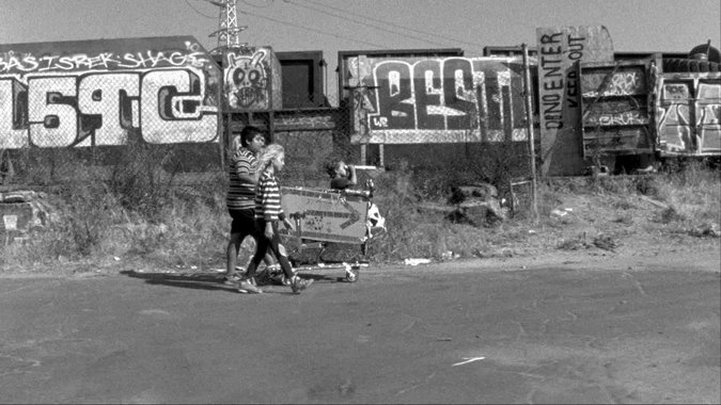




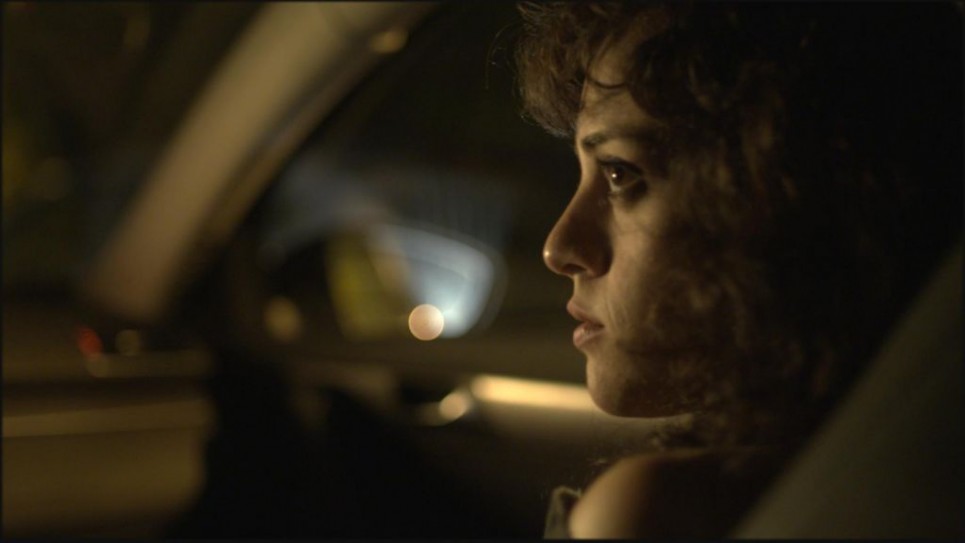
 RSS Feed
RSS Feed
